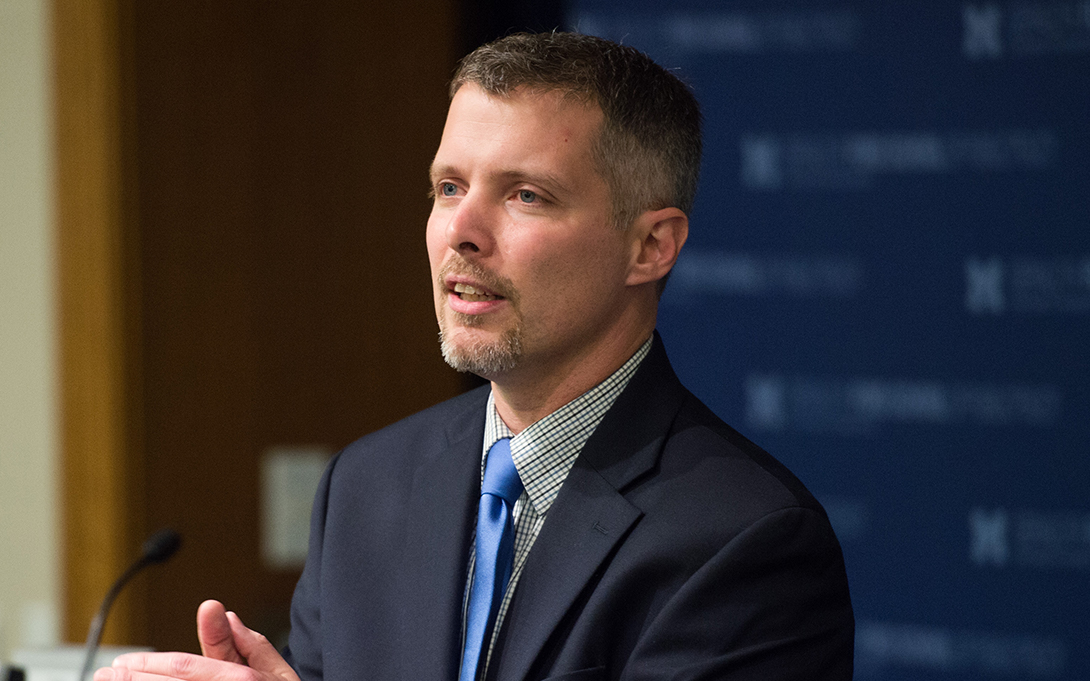
Following the release of his study crunching numbers from the U.S Census Bureau's Household Pulse Data, Luke Shaefer, the Hermann and Amalie Kohn Professor of Social Justice and Social Policy, associate dean for research and policy engagement, and director of Poverty Solutions, has continued to explain the findings.
"What we did have done during the COVID era has been in many ways different from the safety net response of previous generations," he told PBS NewsHour. "We did more with cash transfers and cash transfers, had the impact of allowing families the flexibility to meet the needs that they find most pressing in their lives."
The government can use the stimulus checks as a basis for future support for struggling families, according to Shaefer.
"Our analyses thus far have yielded a fairly simple story: throughout the crisis, the level of hardship faced by U.S. households can be directly linked to the federal government’s response," Shaefer told Marketwatch, along with his co-author Patrick Cooney, assistant director of economic mobility at Poverty Solutions.
And it wasn't just low-income families that benefited from the checks: "You see the biggest change in food hardship among the lowest income families, but you see a lot of action among middle class families too," he said. "It really points to the fact that they were struggling with a lot of these sort of core necessities as well. So I think we can know now that the government can act right in a cash transfer policy that can make an immense difference in the lives of families who are struggling to make ends meet."
You can read and hear the news items about Shaefer and Cooney's study here:
-
Stimulus checks played a major role in nationwide decline in anxiety and depression, new analysis says, Marketwatch, June 5, 2021
-
How did the stimulus checks impact everyday Americans?, PBS NewsHour, June 5, 2021
Read Shaefer and Cooney's full report here.
